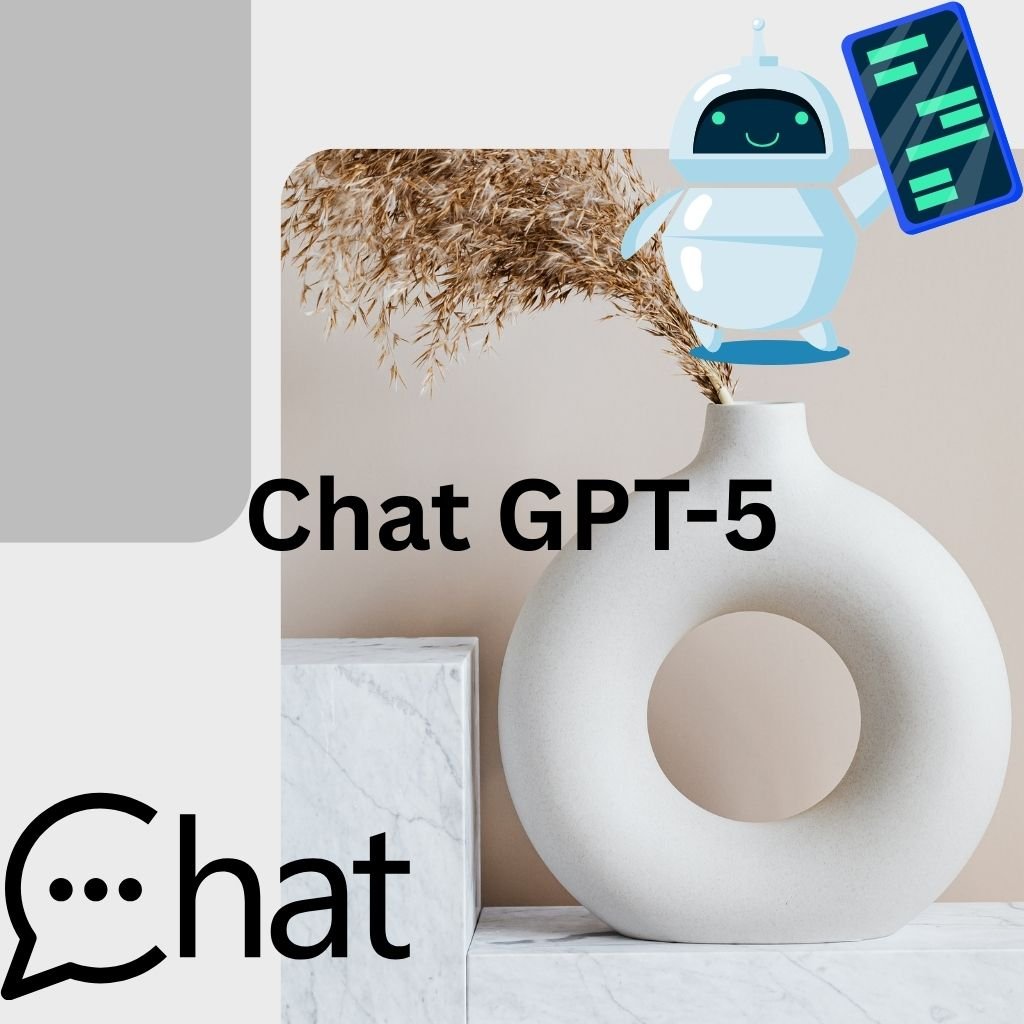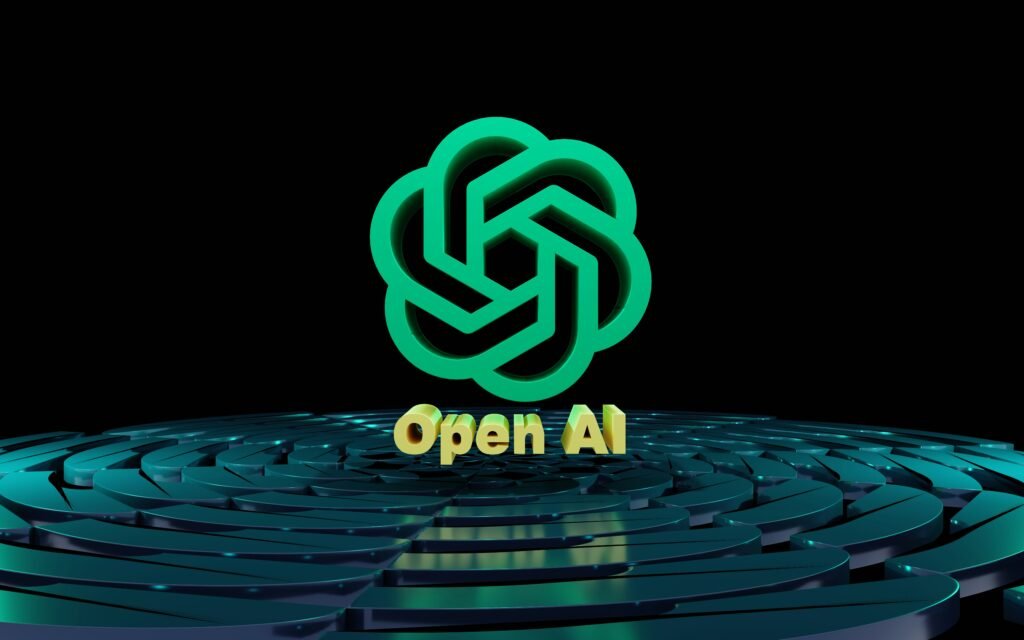The Future of AI: How ChatGPT-5 Could Revolutionize Technology and Society
Introduction
How ChatGPT-5 Could Revolutionize Technology and Society. Artificial Intelligence (AI) has been advancing at an unprecedented rate, and OpenAI’s ChatGPT-5 is poised to be the next major leap in this evolution. Following the success of GPT-4, expectations are sky-high for what GPT-5 will bring—whether it’s deeper reasoning, near-human creativity, or seamless real-world integration.

ChatGPT-5 is coming—and it could change everything. Explore its expected features, industry disruptions, ethical dilemmas, and how to prepare for the next AI revolution in this 1500-word deep dive.
In this in-depth exploration, we’ll cover:
- What we know (and speculate) about ChatGPT-5
- Key expected improvements over GPT-4
- Industries that will be most impacted
- Ethical concerns and challenges
- Preparing for an AI-driven future
By the end of this article, you’ll have a clear understanding of how GPT-5 could reshape technology, business, and daily life—and what it means for you.

What Is ChatGPT-5? The Next Evolution of AI
ChatGPT-5 is OpenAI’s anticipated successor to GPT-4, expected to launch in late 2024 or early 2025. While OpenAI has not yet confirmed all details, leaks, and expert predictions suggest it will be a massive upgrade in terms of:
1. Enhanced Reasoning & Problem-Solving
- Fewer hallucinations (incorrect answers) – GPT-5 is expected to significantly reduce factual errors.
- Longer context retention – Potentially supporting 1 million+ tokens, meaning it can remember and analyze much larger documents, books, or conversations.
- Better logical reasoning – Improved ability to solve complex math, programming, and scientific problems.
2. Multimodal AI: Beyond Just Text
GPT-4 already supports image inputs, but GPT-5 is expected to fully integrate:
- Voice interactions (real-time conversational AI)
- Video comprehension (analyzing and generating video content)
- 3D modeling & augmented reality (AR) assistance
This could make GPT-5 a true all-in-one AI assistant—not just a chatbot.
3. Real-Time Learning & Adaptability
Current AI models like GPT-4 rely on pre-trained data up to a certain cutoff date. GPT-5 might introduce:
- Live internet access with verification (reducing outdated answers)
- Continuous learning from user interactions (while maintaining privacy)
- Personalized AI experiences (adapting to individual users’ writing styles, preferences, and needs)
4. Speed & Efficiency Improvements
- Faster response times – Optimized for real-time applications.
- Lower computational costs – Making AI more accessible to businesses and developers.

How ChatGPT-5 Could Transform Major Industries
1. Healthcare: AI as a Diagnostic Partner
- Personalized medicine – AI could analyze patient history, genetics, and latest research to suggest treatments.
- AI-assisted surgery – Real-time guidance during operations using AR and robotics.
- Mental health support – More empathetic and responsive AI therapists.
Potential Risk: Over-reliance on AI without human oversight could lead to misdiagnoses.
2. Education: The Rise of AI Tutors
- Customized learning paths – Adapting to each student’s strengths and weaknesses.
- Instant homework help – Solving complex problems with step-by-step explanations.
- Language learning – Real-time conversational practice with near-native fluency.
Challenge: Ensuring AI doesn’t replace human teachers but instead assists them.
3. Business & Productivity
- Hyper-intelligent virtual assistants – Scheduling, email drafting, and even negotiating deals.
- Automated coding & debugging – Reducing development time for software engineers.
- AI-driven market analysis – Predicting trends with near-perfect accuracy.
Impact: Some jobs may be automated, but new roles in AI management will emerge.
4. Creative Industries: AI as a Collaborator
- Scriptwriting & storytelling – Generating movie plots, dialogues, and even full novels.
- Music & art generation – Composing original scores or designing graphics on demand.
- Game development – Creating dynamic, AI-generated game worlds.
Debate: Will AI enhance creativity or replace human artists?
Ethical Concerns & Challenges
1. Healthcare: AI as a Diagnostic Partner
- Personalized medicine – AI could analyze patient history, genetics, and latest research to suggest treatments.
- AI-assisted surgery – Real-time guidance during operations using AR and robotics.
- Mental health support – More empathetic and responsive AI therapists.
Potential Risk: Over-reliance on AI without human oversight could lead to misdiagnoses.
2. Education: The Rise of AI Tutors
- Customized learning paths – Adapting to each student’s strengths and weaknesses.
- Instant homework help – Solving complex problems with step-by-step explanations.
- Language learning – Real-time conversational practice with near-native fluency.
Challenge: Ensuring AI doesn’t replace human teachers but instead assists them.
3. Business & Productivity
- Hyper-intelligent virtual assistants – Scheduling, email drafting, and even negotiating deals.
- Automated coding & debugging – Reducing development time for software engineers.
- AI-driven market analysis – Predicting trends with near-perfect accuracy.
Impact: Some jobs may be automated, but new roles in AI management will emerge.
4. Creative Industries: AI as a Collaborator
- Scriptwriting & storytelling – Generating movie plots, dialogues, and even full novels.
- Music & art generation – Composing original scores or designing graphics on demand.
- Game development – Creating dynamic, AI-generated game worlds.
Debate: Will AI enhance creativity or replace human artists?
How to Prepare for the GPT-5 Era
For Individuals:
✔ Stay updated – Follow AI news to understand its impact on your field.
✔ Upskill – Learn AI tools to remain competitive in the job market.
✔ Use AI responsibly – Verify AI-generated content before relying on it.
For Businesses:
✔ Experiment with AI integrations – Automate workflows where possible.
✔ Train employees on AI collaboration – Humans + AI = maximum efficiency.
✔ Monitor regulations – Comply with upcoming AI laws.
Final Thoughts: Is GPT-5 a Leap Forward or a Risk?
ChatGPT-5 has the potential to be the most transformative AI yet—reshaping industries, boosting productivity, and even altering how we think about creativity. However, with great power comes great responsibility.
The key will be balancing innovation with ethics. If developed responsibly, GPT-5 could be a force for unprecedented progress. If mismanaged, it could deepen societal divides.
One thing is certain: The AI revolution is accelerating, and we all need to be ready.
What Do You Think?
Are you excited about GPT-5, or do you have concerns? How do you think it will impact your work or daily life? Let’s discuss in the comments!
Stay tuned to TechHubLab.com for more AI insights, tech trends, and future-focused discussions! 🚀